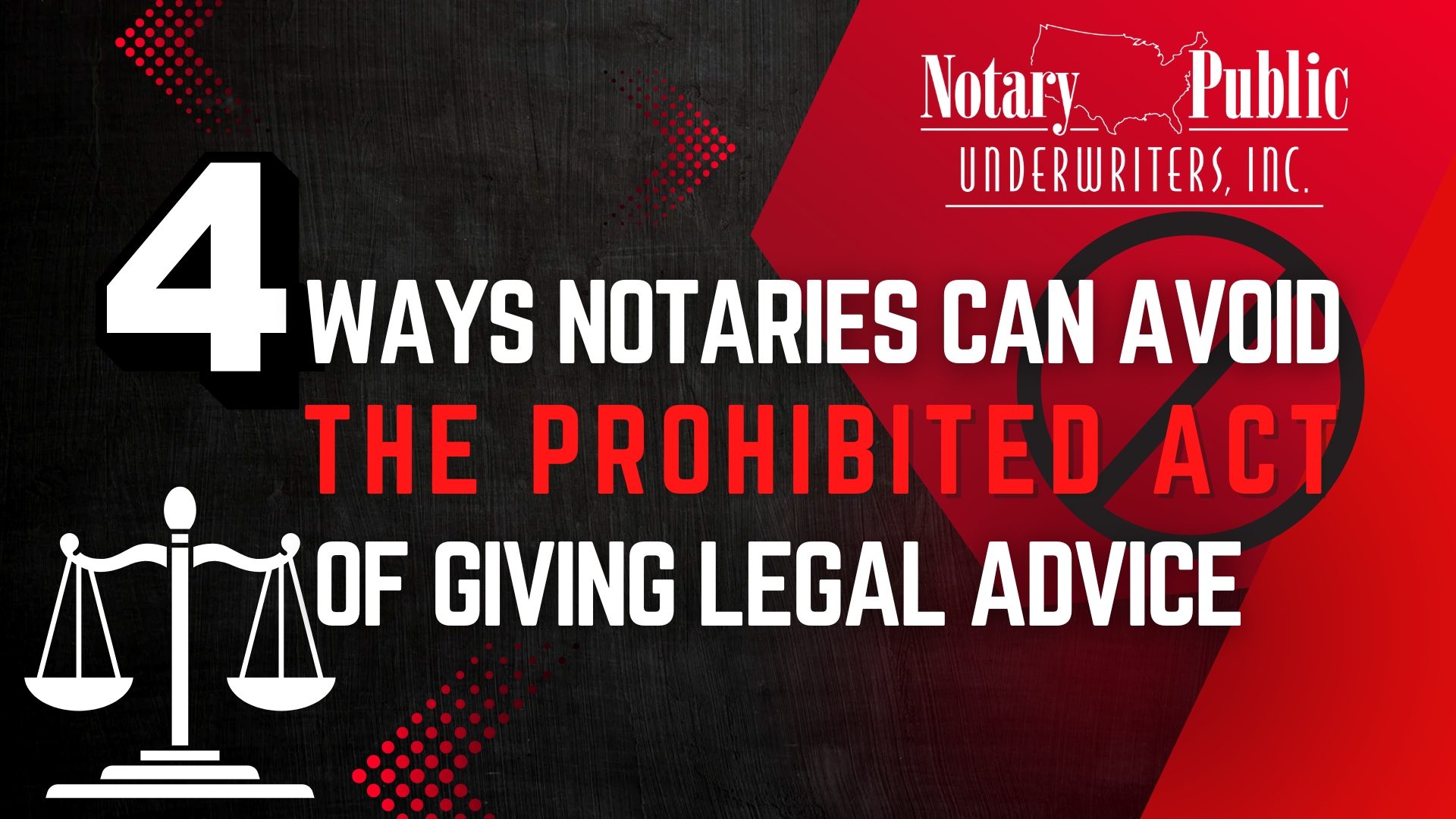Notary Public Underwriters Blog
What Constitutes Legal Advice? A Notary’s Guide
- Details
- Published: November 19, 2024

As a notary public, you are prohibited from giving legal advice. The question most often asked, however, is: What exactly is considered legal advice?
It is imperative, as a notary, that you understand what the unauthorized practice of law (UPL) is and how to avoid it. UPL refers to the practice of law by an individual who has not been licensed or admitted to practice law in a given state or territory.
Here are a few common examples of giving legal advice:
Giving advice, opinions, or explanations about the effect of a document or transaction
Notaries who are not attorneys may not provide advice, opinions, or explanations about the effect of a document or transaction. Any questions the signer has regarding how to complete the document, its consequences, or its effect should be directed to the document issuer or the accepting parties.
Assisting in the drafting or preparing of a legal document
As a notary, you may not assist in drafting or creating legal documents. Even if you understand the signer’s needs, this constitutes practicing law without a license.
Choosing the notarial act
This is another common issue that often goes unnoticed. Notaries are often presented with documents missing the notarial certificate, which indicates which notarial act needs to be performed. Notaries are not permitted to decide which certificate to write, stamp, or attach to the document. The signer must choose the notarial act/certificate to be used.
Advertising in a language other than English
A notary who is not an attorney may not advertise their services as a notary public in a language other than English. Literal translations of the phrase "Notary Public" into another language are prohibited.
The information above is provided for informational purposes only. Nothing herein should be construed as legal advice. Users are solely responsible for understanding and adhering to their applicable notarial laws, rules, procedures, and practices.

